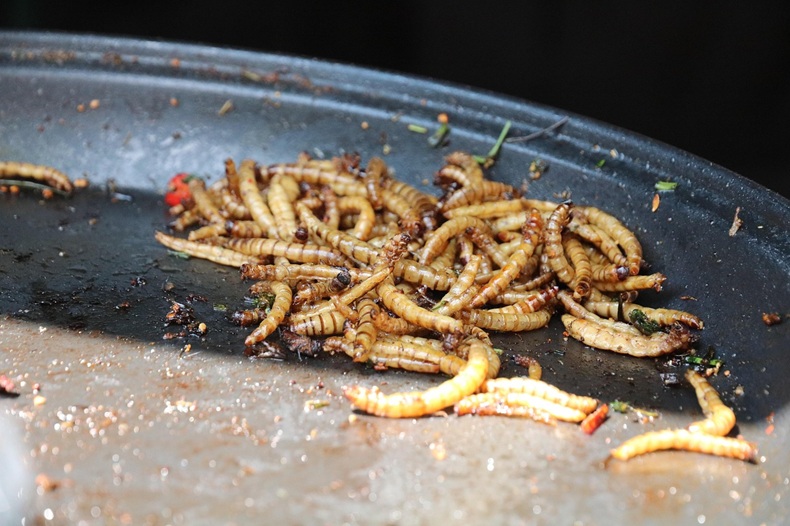Insect-Based Foods Unlikely to Replace Meat, New Study Reveals

Insect-based foods are unlikely to replace traditional meat products. A recent study published in Nature Sustainable Agriculture has found that efforts to promote insect consumption as a sustainable alternative to meat have largely failed. The main reason? Widespread cultural disgust at the idea of regularly eating insects.
In recent years, insect farming and consumption have been promoted as a more environmentally friendly option compared to traditional meat production. However, despite the alleged environmental benefits, it remains highly unlikely that crickets, grasshoppers, or ants will become a mainstream food source, especially in Western countries, where resistance to the idea remains strong.
Most companies focus on farming insects for animal feed
Surveys conducted in the United States and Europe show that while 91% of respondents are willing to try plant-based meat alternatives, only around 20% would consider eating insects. In addition to feelings of “disgust” rooted in cultural norms, there are also economic barriers. The study notes that most companies, except for a few startups producing protein bars, choose to focus on farming insects like black soldier flies for animal feed rather than for human consumption.
“Given these challenges, it is difficult to see how insect-based foods could significantly replace traditional meat options,” the paper states. Although many people claim they want to eat food from sustainable farming systems, relatively few in Western countries have adopted vegetarian or vegan diets. Meanwhile, global meat consumption is expected to increase in the coming decades, driven by growing demand from an emerging affluent class in countries such as China.
The market for farmed insects is “incredibly small”
“We have limited resources and we need to devote them to the most promising alternatives,” co-author of the study and executive director of the Insect Institute, Dustin Crummett is reported to have said. He said that farmed insects consistently score the lowest of any of the meat substitutes and the actual market for them is incredibly small, even in places that have a tradition of eating insects.
Crummett noted that although there have been efforts to incorporate insects into products like energy bars and bread, these have not resulted in viable alternatives capable of truly replacing meat consumption. He also said that all the talk about eating insects has not made a big difference, as people still have a strong adverse reaction to insects and there is no cultural history. As with most novel foods, changing longstanding culinary traditions and deep-seated disgust reactions is difficult. Think of the plant-based movement, which hasn’t exactly taken over from the traditional mediterranean or standard balanced diet.
A long way to go
Replacing a traditionally consumed food like meat, a food that has accompanied human evolution for millennia, with plant-based products is a complex challenge, both nutritionally and culturally. Most companies in the alternatives space tend to believe they need to meet people halfway by making alternatives easy to choose and enjoyable to consume, rather than simply hoping a moral belief will prevail. Alternative products will only likely be accepted by the public when they are truly competitive in terms of taste, price, convenience, and their ability to effectively meet nutritional needs is met. Above all, alternatives must convincingly demonstrate that they are more environmentally sustainable and healthier. To this day, this is yet to happen.